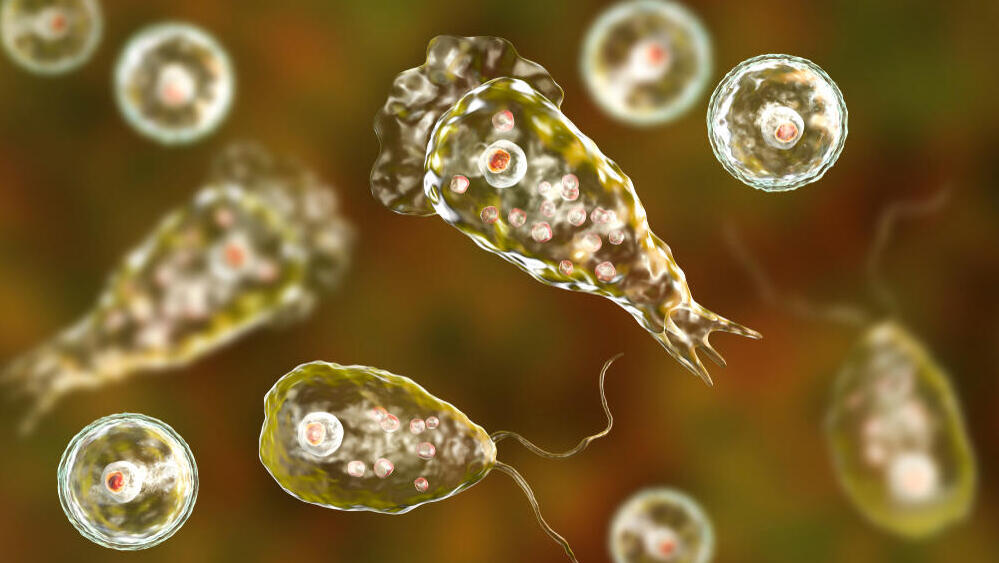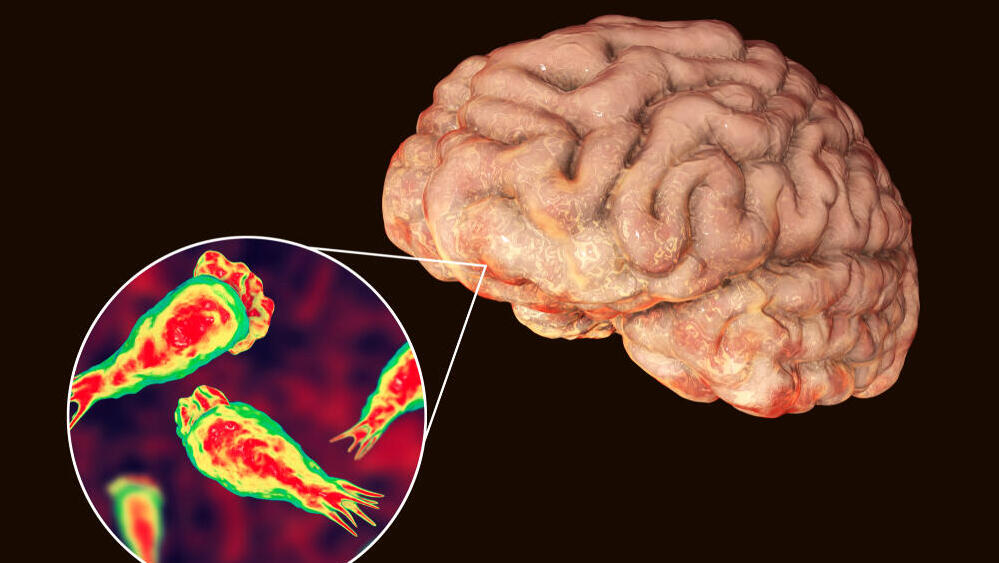Getting your Trinity Audio player ready...
Rabin Medical Center reported Sunday that the 26-year-old patient who contracted Naegleria fowleri, also known as the "brain-eating amoeba," has succumbed to the brain infection.
"From the moment of admission, our medical teams used every resource at their disposal, including medication and surgical interventions, in an attempt to save the patient's life, but his condition continued to deteriorate," the hospital said in a statement.
The young man was hospitalized on Tuesday at Sharon Hospital with symptoms of fever, headache and vomiting while remaining fully conscious. His condition rapidly worsened, and neurological symptoms appeared.
The hospital conducted a swift and comprehensive series of tests leading to the rare diagnosis. Consequently, he was transferred on Wednesday to Beilinson, where he was admitted to the intensive care unit in the neurosurgery department.
This amoeba, primarily found in freshwater, enters the brain through the nasal cavity. The Health Ministry has determined that the young man likely contracted the deadly amoeba at Gai Beach in the Sea of Galilee and that his life is at risk.
The Ministry of Health carried out a sanitary inspection of the water at the beach, and found that the sanitary conditions there are normal and the initial water tests (testing the chlorine level, water turbidity and acidity) are normal.
This is only the second case ever diagnosed in Israel. The amoeba was identified within a remarkably short period of 48 hours, allowing doctors to provide targeted treatment. However, the patient's condition continued to deteriorate.
The disease is considered rare, with very low recovery rates. Symptoms include fever, nausea, vomiting, headache, and a stiff neck. Most infected individuals die within 5 days to 10 days of the onset of symptoms, with the chance of survival estimated at only 10%.




